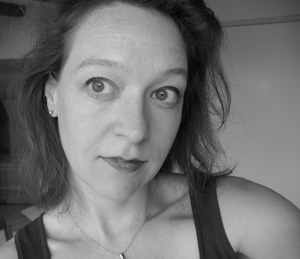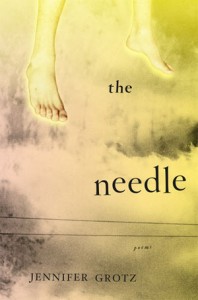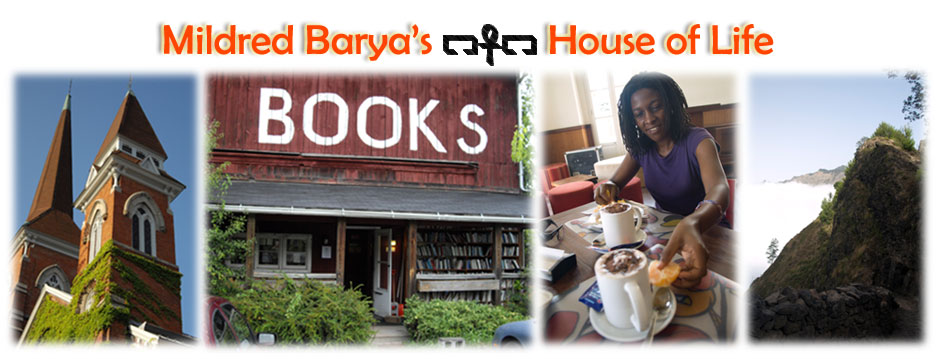 I’m excited about introducing Jennifer Grotz, who is coming to read as part of The Raymond Carver Reading Series. A year ago I discovered her poetry book, Cusp, accidentally really, when I was in Bird Library randomly looking for interesting poetry books. I removed the book from the shelf and read a few poems and liked them very much, so I decided to check it out and read more at leisure.
I’m excited about introducing Jennifer Grotz, who is coming to read as part of The Raymond Carver Reading Series. A year ago I discovered her poetry book, Cusp, accidentally really, when I was in Bird Library randomly looking for interesting poetry books. I removed the book from the shelf and read a few poems and liked them very much, so I decided to check it out and read more at leisure.
I was pleasantly surprised at the beginning of this Fall semester to find that I’ll be teaching her new poetry book, The Needle. I looked forward to teaching her poems. I wasn’t sure how the discussions would go in class. It’s one thing to like the poems and quite another to interest students to appreciate them. One thing I’m learning more as I teach is to trust students and be keen on hearing what they have to say other than what I might have planned to teach. I’ll still go ahead and prepare, but it’s less about me and my teaching and more about learning and sharing.
Sometimes mutual appreciation makes teaching and learning fun, sometimes opposing and diverse views lead to more fruitful discussions and there’s a rare joy in knowing that the learning environment is safe for one to be free and open to discuss candidly their thoughts and interpretations, and support those views with what’s in the text itself.
What stands out in Jennifer Grotz’s poems is the way she approaches ordinary events with love and tenderness, turning the mundane into beautiful details and precious moments. In The Needle poem, “memory meticulously stitches,” ‘a bee feeds thoughtfully from a bowl of sugar,’ while in The Record poem, the mind circles back like a record spinning:
… We trafficked in the grief
of incompatible day and night, we stretched the hours
as best we could, but mostly we practiced
a kind of starving, excruciating to recall
how hard we tried…
In her poem, Alchemy, she takes a close look at the city—Krakow—and ends with a two line stanza that speaks of transformations:
One’s fate in this city is to come and become and be overcome.
In each of us a mad rabbit thrashes and a wolf pack howls.
Boy Playing Violin is another beautiful poem that captures the struggles and inventive ways employed by a boy playing awfully but trying to make a dime in the corner of the square where people are busy minding their own businesses and children are chasing pigeons. Probably we’ve all seen this boy but haven’t thought of a poem waiting to be born:
There’s a boy playing the violin in the corner of the square.
The sounds coming from his violin are awful—is that supposed to be
Mozart?—and he looks ready to burst into tears.
The bowl on the ground in front of him is empty—unbelievable
when you see his competition, a middle-aged man with a boom box
and a marionette of Elvis whose hips he thrusts dramatically
to “You Ain’t Nothing But a Hound Dog.”
The puppeteer has the advantage of real estate,
having staked out a spot right in the center of the square,
but the boy knows what to do—
he sets up in front of the cathedral and steals some flowers
from the vendors nearby to strew on the ground.
So the puppeteer responds by …
Also, the poems that are written in memory of her brother are so touching and delicate, powerful in grief and sadness, eg, Landscape with Arson, especially the lines:
Now it’s only me
who wants to burn something for you, but there’s nothing left—how
do you set fire to the past? Only an impulse to shake free—like cellophane
peeled from a pack—something that clings.
I’ll end with He Who Made the Lamb Made Thee, also written in memory of her brother, and one that took me back to William Blake’s Tiger.
Later we were taught about original sin 
but as children, I remember when we found it.
That’s what we did as children: we looked for things
after dinner was over, as the sun was going down,
when the sidewalk was like a pan just taken off the burner.
You found it first, and I made you show me where
in the field: the cat’s limp body, the flies.
You who loved animals more than humans
choked as you told me you’d seen the older boys
take turns with the board. We lived in a world
without history, we lived in a suburban development.
Nature crept up to its edges. The cat
didn’t have to be lost and soon you
would break down doors, bang your fist into windows
and mirrors and even my face
as you turned into something no one could tame.
Earlier that day we had plucked honeysuckle
and sipped the tiny mouths.

2 Responses to The Needle Poems of Jennifer Grotz